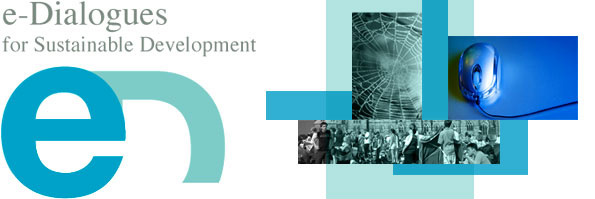|
Transportation infrastructure projects often represent one of the largest budget items in a municipal area. The movement of goods and people is critical to our economy, but transportation infrastructure projects also shape the way we live. They are very large long term investments. Transportation is responsible for 25% of global greenhouse gas emissions, not including emissions from the associated petroleum refining, automotive manufacturing, or road-building. Road transport is the dominant source of transportation-related greenhouse gas emissions, accounting for 80% of the total. The contributions from transportation are also rising faster than in any other sector. Join us in a conversation with transportation experts as we discuss Canada’s transportation future. The infrastructure choices we make today will have an impact felt for decades. What cutting edge options exist?

Join us at 4:00pm EST on Wednesday, November 29nd, in a discussion featuring leading experts.
|
Dr. Ann Dale, Professor,
Science, Technology & Environment, Royal Roads University
Trudeau Fellow
 Dr. Dale is a rare hybrid, both an academic and an activist. Currently she is engaged in two major research initiatives at Royal Roads University. First, she is leading the e-Dialogues for Sustainable Development, a series of online dialogues exploring critical issues using the power of the internet to influence public policy. Second, she is working on exploring the relationship between social capital and sustainable community development. Dr. Dale is a rare hybrid, both an academic and an activist. Currently she is engaged in two major research initiatives at Royal Roads University. First, she is leading the e-Dialogues for Sustainable Development, a series of online dialogues exploring critical issues using the power of the internet to influence public policy. Second, she is working on exploring the relationship between social capital and sustainable community development.
| Background |
|
|
Infrastructure choices play a central role in the creation and maintenance of communities that are sustainable, livable, and prosperous. The challenge is to engage with people and their diverse cultures, interests, visions, priorities and needs. One of the major reasons sustainable community development remains largely unresolved within municipalities is gridlock in the planning and implementation processes for decision-making. There are basic disconnections between federal, regional and local governments, between rural and urban communities, and between business and research communities. The challenge is to encourage widespread adoption of the infrastructure decisions being made by communities on the lead-edge of adoption of more sustainable infrastructure.

This series of e-dialogues will explore infrastructure choices in the five focus areas of the Sustainable Infrastructure project: energy, transportation, waste management, land use planning and governance. We will also hold a wrap-up dialogue that finds common ground from these five areas. These e-dialogues will involve experts from the field discussing the critical infrastructure choices necessary for sustainable community development and leading-edge North American examples of sustainable infrastructure development. Through these dialogues, we hope to develop an understanding of how current municipal decision-making may lead toward achievement of sustainability objectives. We hope you will join us in these vibrant discussions.
|
| Panelists |
|
 |
Ann Dale, Project Lead, Moderator
Ann Dale is a professor with the School of Environment and Sustainability, Faculty of Social and Applied Sciences at Royal Roads University and holds a Canada Research Chair in Sustainable Community Development (crcresearch.royalroads.ca). She chairs the Canadian Consortium for Sustainable Development Research (CCSDR), a consortium of all the heads of research institutes across Canada, and is active in the Canadian environmental movement. Dr. Dale chairs an organization she created, the National Environmental Treasure (the NET) and is the Executive Co-ordinator, Research and Public Policy for the Canadian Biodiversity Institute. From 1998-2000, she led an energy efficiency program on behalf of the Association of Canadian Community Colleges. Previously, she was an Executive with the Federal Government, and was one of the two public servants behind the creation of the National Round Table on the Environment and the Economy (NRTEE).
Dr. Dale is a Trudeau Fellow (www.trudeaufoundation.ca), as well as a Fellow of the World Academy of Art and Sciences. She is also a Board member of the World Fisheries Trust, and the Advisory Committee to the Montreal Institute for the Environment. Dr. Dale holds degrees in psychology and public administration from Carleton University, and a doctorate in Natural Resources Sciences, McGill University. Current research areas include governance, social capital and sustainable community development, biodiversity policy, and deliberative electronic dialogues (crcresearch.royalroads.ca/edialogues). She is a recipient of the 2001 Policy Research Initiative Award for Outstanding Contribution to Public Policy for her book, At the edge: sustainable development in the 21st century.
|
 |
Marty Collier
For the past 13 years, Marty Collier has provided government and non-profit organizations with planning and project management services including: strategic planning, finance, fund raising, policy analysis and development, communications/partnership planning, event coordination, staffing, membership services and research.
He has worked with the Niagara Escarpment Commission, Toronto Coalition for Active Transportation, Moving The Economy, Detour’s UrbanSource Bookstore, Ontario Smart Growth Network, Recycling Council of Ontario, Nature Conservancy of Canada, Community Bicycle Network, and the Ontario Ministry of Finance.
Prior to this, Marty worked in both the music and textile industries for 10 years. He holds a Master of Environmental Studies degree in Urban Planning from York University and a Bachelor of Arts degree from Queen's University.
|
| |
Briana Illingworth
Briana Illingworth is the New Mobility HUB Network Project Manager at Moving the Economy, a Toronto-based partnership working to accelerate the implementation of New Mobility and sustainable transportation initiatives.
Briana has also been involved in Moving the Economy's Integrated Mobility Systems and Industry Mobilization projects. Outside of work, she is an acitve cyclist and currently sits on the Board of Directors of the Community Bicycle Network.
|
| |
Emmanuel Le Colletter
Project Manager, Agence métropolitaine de transport, Montréal, QC
Emmanuel Le Colletter has a Bachelor’s degree in Civil Engineering from Montreal Polytechnic School and a Master’s degree in Transportation Engineering from the University of California, Berkeley. After working a few years in the consulting sector in both the United States and Quebec, Mr. Le Colletter became a project manager for the AMT, the Montreal Regional Transit Authority. He is responsible for the planning of new transit facilities in the Montreal region and was involved in the revision of AMT’s five-year Strategic Plan.
|
| |
Louis-Paul Tardif
Louis-Paul Tardif has been involved in the transportation sector for more than 30 years. He started his own consulting/training firm in 1994 and has performed several projects since. He has performed several projects for transport companies, organizations and provincial /federal governments. Louis-Paul also worked on international projects at the OECD level.
Before starting his own consulting firm he worked with the Canadian Trucking Alliance including five years as Director General of that organization, the Ministry of Transport of Quebec, where he was responsible for the financial division for surface passenger transportation and with the Canadian Transport Commission.
Louis-Paul holds a Master Degree in Geography from York University in Toronto and he is a Ph.D. candidate at the University of Ottawa. Louis-Paul did his undergraduate studies in Geography at Laval University in Quebec City.
|
|
Royal Roads University
School of Environment and Sustainability
edialogues@royalroads.ca |
|




